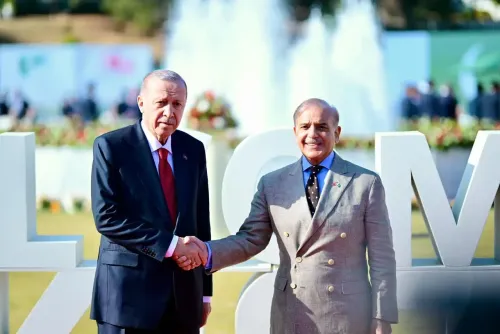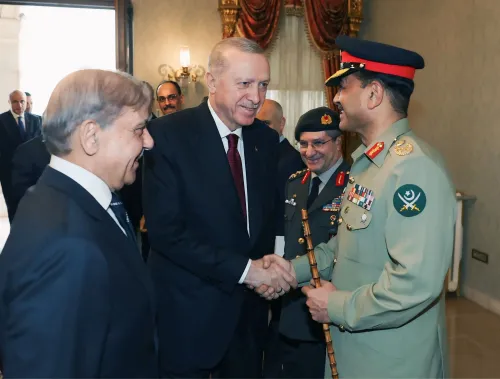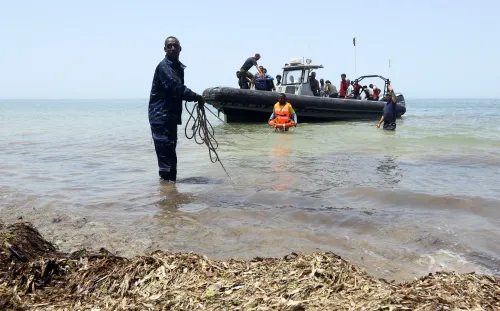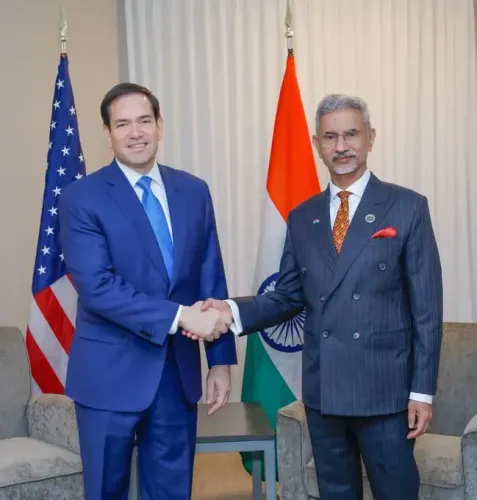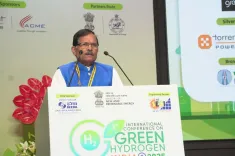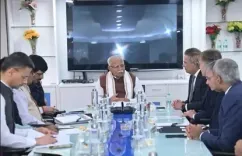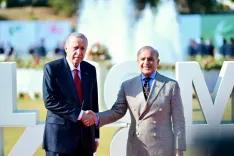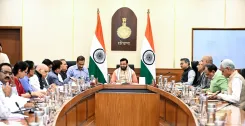Is Russia Intruding into Estonian Airspace?
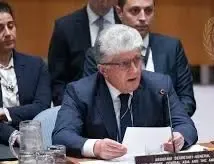
Synopsis
Key Takeaways
- Emergency meeting held by the UN Security Council regarding airspace violations.
- Estonia claims Russian jets violated its airspace.
- Russia denies these claims, asserting adherence to international regulations.
- Calls for de-escalation and dialogue from various nations.
- Global implications for NATO and regional security.
United Nations, Sep 23 (NationPress) The UN Security Council convened an urgent session to address the reported violation of Estonian airspace by Russian military aircraft.
Miroslav Jenca, the UN Assistant Secretary-General for Europe, Central Asia, and the Americas, stated during his briefing that the organization is currently unable to verify the claims surrounding the incident and lacks comprehensive details on the matter, relying solely on publicly available information.
In a letter sent on Saturday to the Security Council president, Estonia alleged that three Russian MiG-31 fighter jets penetrated up to 10 km into its airspace, remaining there for 12 minutes on Friday, Jenca reported.
The Russian Defense Ministry countered this assertion on Saturday, claiming that its fighter jets were conducting a routine flight from Karelia near the Finnish border to an airbase in Kaliningrad, adhering to international airspace regulations without breaching Estonian airspace, Jenca explained.
"All parties involved must act with responsibility, utilize all available communication channels, and take immediate actions to reduce tensions and avert risks to regional security," he emphasized. "The world cannot afford a situation that spirals out of control, threatening to exacerbate the already devastating conflict in Ukraine."
Estonia, alongside other European nations present at the meeting, and the United States, accused Russia of breaching Estonian airspace and heightening tensions, as reported by Xinhua news agency.
Dmitry Polyanskiy, Russia's first deputy permanent representative to the UN, refuted the claims of airspace violation and accused European nations of harboring Russophobia.
"The actions of European politicians are fostering a primitive hatred towards our nation and attempting to depict Russia as the main threat to the security of Europe," he asserted.
"Our neighbors now assert that Russia is responsible for the incursion into Estonia's airspace, yet there is no evidence beyond the hysteria emanating from Tallinn," Polyanskiy stated.
Mike Waltz, the US Permanent Representative to the UN, in his inaugural address to the Security Council, asserted that the US and its allies would "defend every inch of NATO territory."
It's important to note that Estonia is a NATO member.
Members of the Security Council who are not from Europe urged for restraint and de-escalation.
Geng Shuang, China's deputy permanent representative to the UN, called for all parties to maintain calm, exercise restraint, clarify the facts, and engage in dialogue to prevent misunderstandings and escalation.
This meeting was initiated by Estonia, with support from the five European members of the council: Britain, Denmark, France, Greece, and Slovenia.

